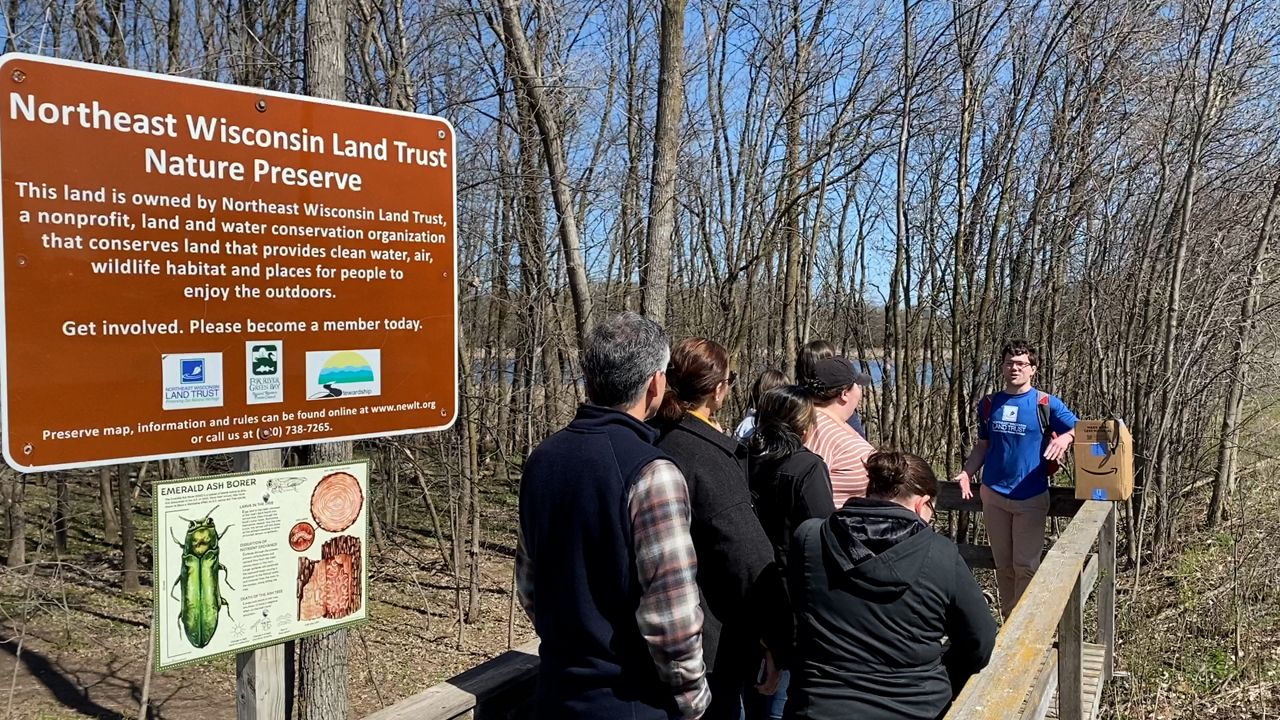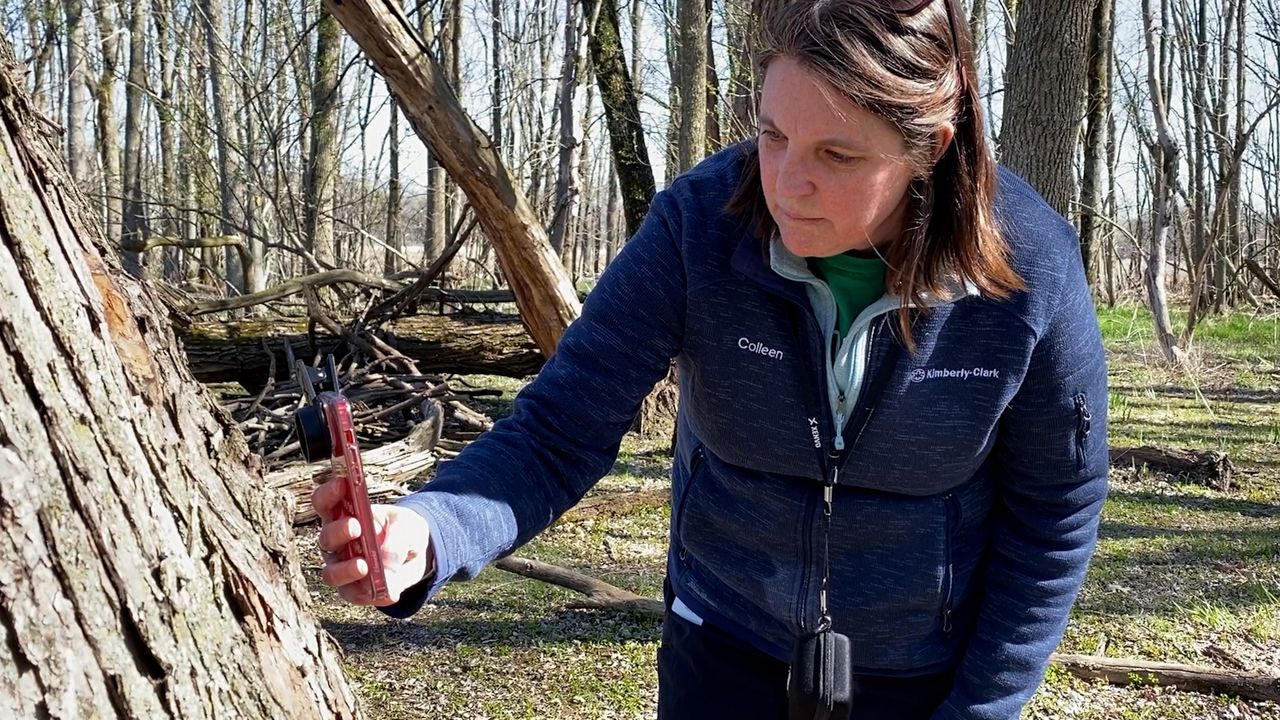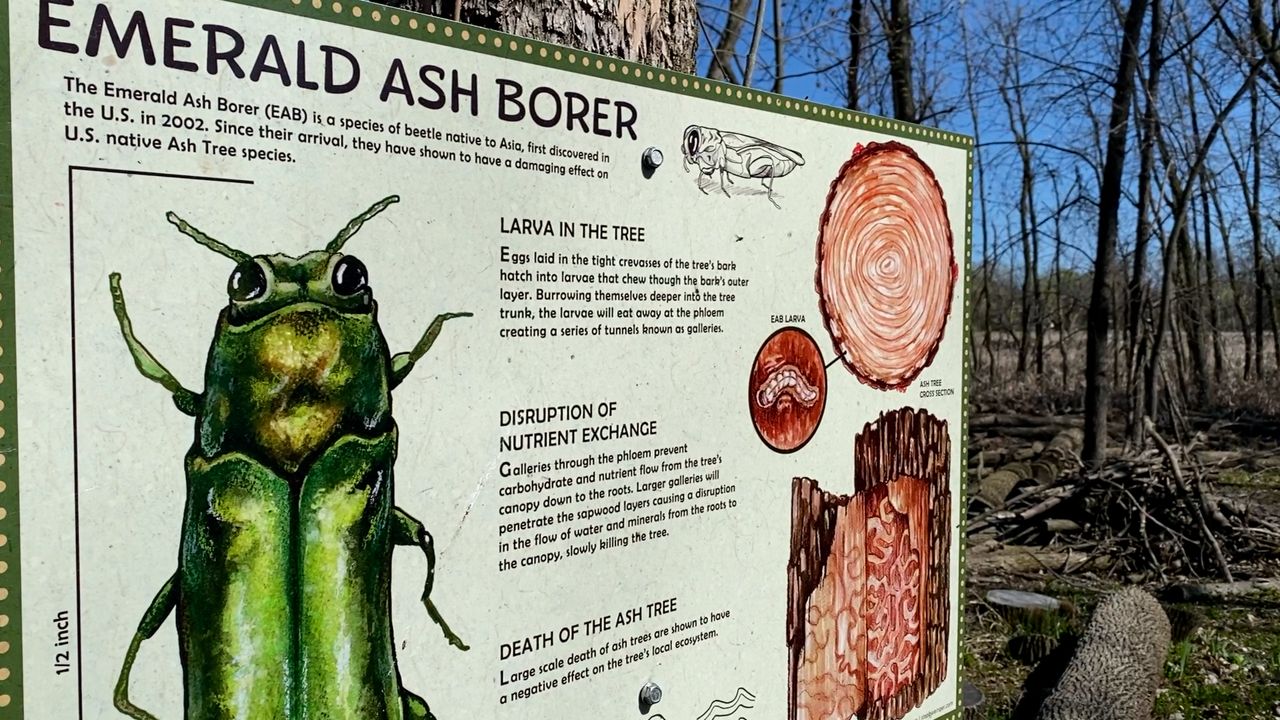WINNEBAGO COUNTY, Wis. — The Stroebe Island Marsh in Winnebago County, also known as the Guckenberg-Sturm Preserve, offers a slice of tranquility inside the Fox Cities.
Paul List is part of the Northeast Wisconsin Land Trust, a nonprofit that owns and maintains Stroebe Island and similar properties with the public in mind.
“We want these preserves to be a community resource and then have the community be involved in the stewardship of these resources as well,” explained List. “We’re trying to bring people out here, trying to create these opportunities for people to not only just be out in nature but to be involved in the protection of the nature here.”

A group from Kimberly Clark recently accompanied List to gather data as part of its Earth Day activities.
“What we’re doing here is a citizen science activity. We bring people out to document the nature that we have out here, see what plants are growing, what animals we find, and what other sorts of wildlife there might be out here,” said List. “We’re trying to document that for our purposes. It would help us manage this preserve better, but also contribute to these global efforts.”
The group took to the marsh in late April, which is also known as Citizen Science Month, a national effort to empower individuals to conduct scientific research.
Colleen Geurts is part of the Kimberly Clark group and has supported the Land Trust in the past. She said she wanted to share the experience with her co-workers.

“It’s more about connecting with nature and science rather than doing a traditional cleanup activity,” said Geurts.
The Land Trust helps preserve private properties, along with ten locations that are open to the public. Geurts and other citizen scientists used lens attachments for their phones to capture and document plant and animal life in the area.
“It’s one of the last cattail marshes on the Fox River and it’s very important for water quality purposes and the habitat,” explained Geurts.
List said the cattails are valuable for filtering water in the Fox River.
“Out of all the cattail marsh that used to exist on the Fox River, about 99% of it has been destroyed or degraded in some way. This marsh here is one of the 1% of cattail marshes that remained on the Fox River,” said List.
The member-supported group has preserved over 6,000 acres of public and private land since its founding in 1996.

Data collected from citizen scientists helps inform the Land Trust about possible dangers from invasive species, like the emerald ash borer, which has already laid waste to many trees in the preserve.
“We’re hoping to see, hey, is the impact getting any worse? Is it kind of about the same as what it has been? Are there any new species that we should be worried about? And also to see if there are any new species colonizing the area that we might want to promote,” said List.
The Northeast Wisconsin Land Trust operates in 12 counties to protect and preserve wildlife and claims to have preserved 6,000 acres since it began in 1996.
Through initiatives like citizen science, they’re also bringing the public into their properties to help preserve wildlife and appreciate these important ecosystems.



